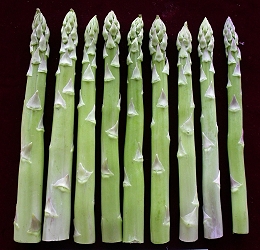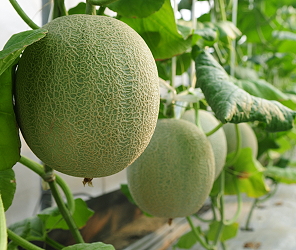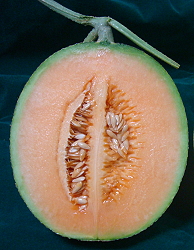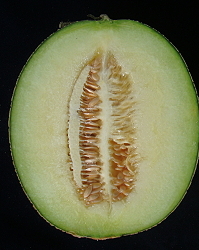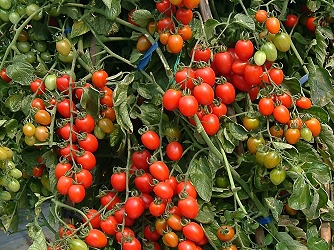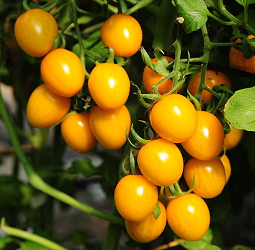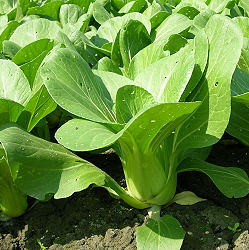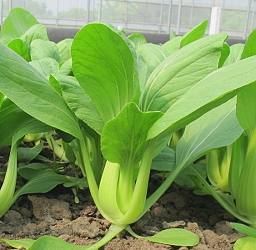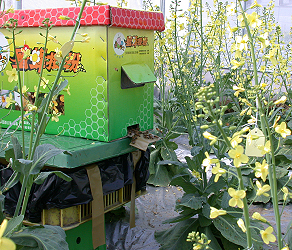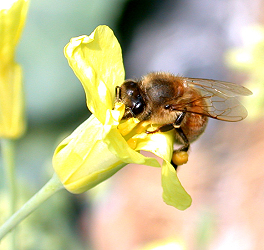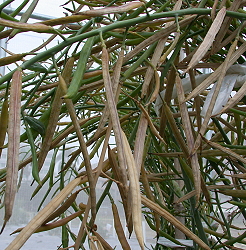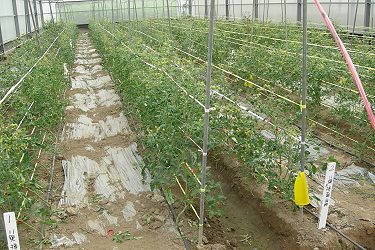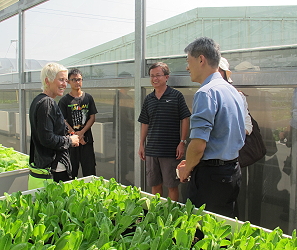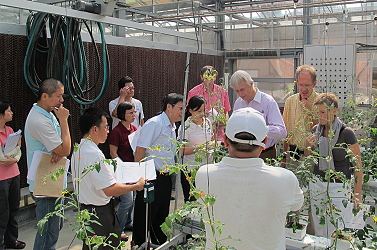Vegetables
Vegetables
Breeding work is focused on asparagus, muskmelon, garlic, tomato, pak-choi, broccoli, cabbage and cucumber. Asparagus varieties Tainan Selections #1, #2 and #3 have vigorous growth, compact spear tips, and uniform spears. A single-cross variety Tainan #4 was released in 2004. Its spears are large, crisp, low-fiber, bright green, and have high sugar content and good flavor. At present, the station focuses on the breeding of all-male and high-yielding varieties.
|
|
|
Muskmelon varieties released from the Station are Tainan #2, #5, #6, #7, #8 and #9. Red pulp muskmelon Tainan #11 and green pulp muskmelon Tainan #12 are the most recent releases. All the Station’s muskmelons are resistant to powdery mildew.
|
|
|
Cucumber Tainan #1 is gynoecious and parthenocarpic with good fruiting characteristics, and is suitable for protected cultivation. Cucumber breeding focuses on resistance to CCYV disease.
In cooperation with AVRDC – The World Vegetable Center, the Station has released processing tomato varieties Tainan Selection #2 and Tainan #3, heat-tolerant cherry tomato Tainan-ASVEG #6 and Tainan-ASVEG #11, and Tomato leaf curl virus-resistant variety Tainan-ASVEG #19. The Station also has released two yellow cherry tomato varieties, Tainan #12 and #24. Ongoing tomato breeding focuses on multiple flesh colors, resistance to Tomato leaf curl virus and root-knot nematode.
|
|
|
Pak-choi breeding focuses on heat tolerance. Short stem types Tainan #1 and #2 and long stem type Tainan #3 were released in recent years. Broccoli breeding is focused on heat tolerance, and suitability for long-distance distribution and storage.
Cabbage breeding focuses on heat tolerance for production in lowlands, which has resulted in the release of heat-tolerant varieties Tainan #1 and #2. Techniques were developed to overcome cabbage self-incompatibility by CO2 treatment and to improve vernalization. These techniques facilitate cabbage seed production in sub-tropical lowland areas, and have been applied to cauliflower and broccoli. A PCR-RFLP technique developed by Horticulture Research International has been applied to identify self-incompatible genotypes of common cabbage to assist in breeding work. The seed production technique for the parental lines of cabbage and cauliflower and the vernalization technique have been transferred to the seed industry for commercial production.
|
|
|
|
Cultural practice improvement activities include:
-
use of polyethylene tunnels to improve quality and yield of green asparagus in winter;
-
development of tunnel-type protected production of muskmelon, and re-use of tunnels for other vegetables after harvest of muskmelons;
-
use of biodegradable plastic film and nonwoven fabrics for crop production;
-
development of protective production system for clustering tomato;
-
development of grafting technique to overcome problems related to flooding stress and continuous cropping of tomato; and
-
establishment of fertigation techniques for the production of fruit vegetables in protected facilities to save fertilizer and water.
|
|
|
|
|
|

